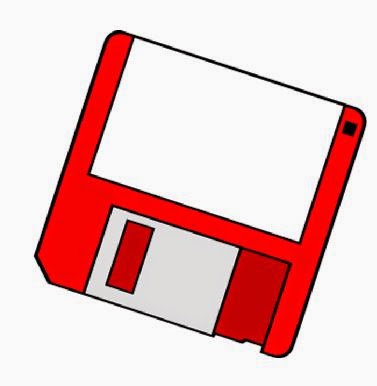I like things broken down into manageable increments, so when I draft a story, each chapter has a separate file. After the final polish of all the chapters, I'll merge them into one document for submission.
When I was writing short stories, one computer file sufficed — UNTIL — I was into writing novels. At a writers' conference, the after-hours topic came up of one file or chapter files for novels. Well, the floodgates of stories about computer crashes, hard drives having damaged sectors, dropped laptops, floppy disks (and later the 3.5" ones) being damaged by unintentional exposure to heat/cold, and so on, was my wake-up call. A few conferences later, there was the "theft" stories that then had me backing things up. So, I'm all for—
1) keeping one hard copy around of all completed work (I keep the drafts and the backup paperwork, sketches, research, etc. in a Banker's Box) but the final, finished document I put in a 3-ring binder.
2) keeping a backup disk (CD or USB) copy (which is in an environmentally safe place so it will last the eight years, or so, that's their average lifespan before they have to be recopied)
3) keeping a backup on my external hard drive (my own "little cloud" because I don't believe in or trust The Cloud)
and—
4) one hard copy always goes to my daughter who lives out of state (in case of an unforeseen natural disaster - fire, tornado, etc.)
Have I ever had a problem with losing a story? Not the entire story, but yes, a long, long time ago, one story had no Chapter 13 because the computer developed "a bad sector." Was I devastated by the loss? No. I had a hard copy (at the time I didn't have a computer with floppy disks). Of course, I didn't like having to retype 5,000 or so words, but at least it wasn't the entire novel.
So, have you ever lost a story or a piece of one to a computer glitch? Lost a USB drive or CD with your story on it? What happened and how did you remedy things so it wouldn't happen again?
***THIS BLOG IS UPDATED THE FIRST OF EACH MONTH November 2014 - Don't go overboard and drown in descriptions
*** MY WORKSHOP SCHEDULE CAN BE FOUND HERE
Tuesday, September 30, 2014
Monday, September 1, 2014
September 2014 - Don't Shun How-to Books Because—
My pet peeve is the writer who says they don't read how-to books on writing because: 1) they don't want to write like someone else or b) they'd rather learn as they go and just write (the frustrating trial-and-error method).
Okay, so there are how-to books that basically say "write like this and you'll sell a blockbuster." There are also far more how-to books by authors that spout the rhetoric of bygone fiction philosophies. I should know, I've read some 400 how-to books on fiction writing over the years.
Which brings me back to the old trial and error learning, the write-as-you-go experience. Trial and error is a time-sucker. It creates frustrations and causes stories to dead-end or get completely out of hand by going in first one direction then another. Another thing about trial and error is that it actually reinforces bad writing habits. And I know first-hand that bad writing habits are darn hard to unlearn. However, you can't learn fiction techniques if you don't know what they are and, more importantly, why they work and when to use them.
Now, some will say they can get writing how-to's at online blogs and writing websites. Trouble is, the information isn't going to be very comprehensive. The Internet is known for brief blogs and essays, which gives an overview of just an aspect of the device or technique. The best how-to books are tens of thousands of words that cover all aspects of a fiction-writing device or technique. So, the more you know, the better choices you can make for your style of writing fiction. And to know means not just reading a how-to book, but STUDYING the technique and doing exercises to convince your story-telling self to use them in your stories. This is part of "the learning curve."
If you think I spent a fortune on how-to books, well, that's not so. I always go to the local libraries and get a copy or request a library loan for one. If I discover a "keeper," I'll buy myself a copy and study it, adding tools of the trade to my repertoire.
If you ask me which of my keeper books tops my list as the very best one, it is ON WRITING WELL by William Zinsser. It may be billed as a book for nonfiction writing, but it actually changed my thinking and attitude on writing well and telling a story well— and it had advice on writing good fiction.
So, do you read — or do you read, study, and practice — fiction writing techniques from how-to books? If you do, what's the one book that top's your list?
***THIS BLOG IS UPDATED THE FIRST OF EACH MONTH - October 2014 - Don't put your whole story into one file because ...
***My September and October workshops:
--Candid Characters (what's hidden in the answers to those character questionnaires)
--Writing Believable Dialogue
--Bloopers and Writing Blunders
--Characters, Clues and Creativity
--Prologues–do you really need one?
--The Master Project Bible
--Show, Don't Tell
Information is at — http://www.writerscheatsheets.com/workshops.html
# # #
Subscribe to:
Comments (Atom)


